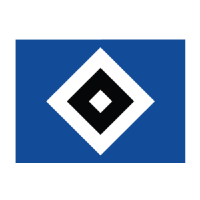|
GELSENKIRCHEN, Germany -- About four miles from Schalke 04's Veltins-Arena sits the main train station, and it begins to get awfully loud and crowded about four hours before kickoff. The ride toward the stadium on the tram is packed. On the way, a number of fans get off at the stop next to Schalke's former home, the tiny Gluckauf-Kampfbahn, where there are a number of storied old bars and a giant biergarten (you can probably guess the translation there) and everything is full. So is the parking lot at the stadium. The singing in the stadium begins about an hour and 50 minutes out, when the visiting fans file into their section. When they really get going, the Schalke fans respond in full. The singing won't stop until well after the match ends. Two conclusions you quickly reach: The soccer in Germany's second division, which houses a number of storied and celebrated clubs with mighty fanbases, really matters. And the chance to move back to the top division matters a lot. - MLS, LaLiga, Bundesliga on ESPN+: LIVE games, replays
- Soccer on ESPN+: FC Daily | Futbol Americas
- Don't have ESPN? Get instant access I was in attendance for Schalke's 3-2 victory over St. Pauli on May 7, a come-from-behind win that indeed clinched promotion for Die Königsblauen back to the Bundesliga, from which they were unceremoniously dumped a year ago. It was so impossibly loud for much of the match that, from my perch in the media section near the top of the arena, I assumed they'd closed the retractable roof. They had not. Despite the miserable 2020-21 campaign -- and the fact that they almost set Germany's all-time winless streak in the process -- Schalke fans filled the stadium every time coronavirus regulations allowed them to over the course of the season. And while they would never admit it, if you gave those in the Bundesliga offices some truth serum, they might admit they were quietly hoping Schalke would rebound as well. The same likely went for a couple of other huge clubs attempting a rebound this fall and spring. Underdog stories are always to be celebrated. Union Berlin's presence in the Bundesliga top five, for instance, is an incredible story. But it's hard for a league to be at its absolute best if some of its biggest clubs can't get their respective acts together. Schalke is a club with over 150,000 members (topped only by Bayern Munich and, depending on the year, Borussia Dortmund), while Hamburg is over 85,000 and Werder Bremen is around 40,000. All three rank in Germany's top 10 in that category. And if Hamburg beats Hertha Berlin, another top-10 club, over two legs in the coming days -- the first in Berlin on Thursday, the second in Hamburg on Monday (stream BOTH matches LIVE on ESPN+) -- they will join Schalke and Bremen in a return to the top division next season. The demise of three heavyweightsGermany's 50+1 ownership model -- in which a majority of voting rights (50 plus one share) is retained by a club's fans/members -- is as pure as you will find in soccer. Fans fight to keep ticket (and beer) prices down and push back vociferously about kickoff times: Matches are to be played at 3:30 p.m. on Saturdays with the fewest possible exceptions. A team's home stadium remains in the hands of the most passionate, and loudest, fans available. The beer flows, the bratwursts smoke and the songs never stop. Of course, as idealistic as 50+1 can seem -- especially in England, where it might cost you more to attend an Arsenal match than it does to travel to Germany and attend a match there -- it also caps German teams' revenue and spending. Going into debt to right your ship after a series of poor decisions or results isn't really an option, and at the bigger clubs you can easily end up with a too-many-cooks situation, unable to nimbly solve problems before they very much cost you in the standings. Throw in millions of euros in revenue lost from a pandemic, and you can have some serious issues. Hamburg, European champions in 1983, played in the Champions League as recently as 2006-07, but fell into a sustained rut. Making short-term decisions to prolong its existence as the only team to never play in the second division since the Bundesliga's founding, HSV managed just one top-half-of-the-table finish in seven seasons, and they survived two relegation playoffs before a stale and tired squad went down in 2018. The Rothosen have played nearly promotion-level ball since but managed to finish fourth, just shy of promotion, for three straight seasons. It looked like the same would happen in 2021-22, but they scored twice in the last 15 minutes of the season finale, beating Hansa Rostock, 3-2, and snaring third place and a spot in the playoff. Werder Bremen, a four-time Bundesliga champion, lifted the Meisterschale in 2004 and played in the Champions League as recently as 2010-11. But despite producing countless young stars -- Mesut Ozil, Claudio Pizarro, Diego, Torsten Frings, Per Mertesacker, Serge Gnabry, Jannik Vestergaard -- and flipping many of them for large transfer fees, their talent level slowly diminished through the years. They finished between eighth and 16th every season from 2011 to 2020 and, for the first time in 40 years, suffered relegation last spring. Then there's Schalke, the Chicago Bears of Germany. They were rampant in the sport's early days -- they won six German championships between 1934 and '42 -- but they've been mostly snake-bitten and self-inflicted since. They've won just one title in the past 75 years, but their fan base remains passionate and enormous. They were playing in the Champions League knockout rounds as recently as 2019, but they, too, failed to parlay prodigious talent -- Manuel Neuer, Julian Draxler, Leon Goretzka, Leroy Sane, a pre-Bremen Ozil -- into a set of future stars. After finishing second to only Bayern in 2018, they plummeted quickly, getting relegated with aplomb in 2021. Early in the spring, it looked like they were doomed for a second year in the second division. They sacked Dimitrios Grammozis, their fifth manager in approximately three years, in early March after a 4-3 loss to Hansa Rostock. They were in sixth place, though their xG figures suggested they were unlucky and might rebound; under interim manager Mike Buskens, they did just that, winning five straight and responding to a 4-1 thumping against Bremen by beating Sandhausen in stoppage time. (The Schalke radio guy's call from the game winner, loosely translated: ""YAAAAAAAAAAAAAAAAHHHHHHH! YAAAAAAAAAAAAAAAAHHHHHHH!") From there, they beat St. Pauli and Nurnberg to top the table. Schalke is indeed coming back to the top division. Bremen is set to return as well, and Hamburg is 180 minutes from joining them. But have they actually fixed what ailed them not too long ago? And where do their squads lack the most as they prepare for life in the first tier again?  Schalke 04Key 2021-22 stats: 2.1 goals per match (first in the league), 2.0 xG (third), 1.3 goals allowed (fourth), 1.2 xG allowed (first). In a wide-open, prolific league, Schalke attempted as many shots as anyone and did a reasonably good job of preventing opponents from high-quality efforts. Goalkeeper Martin Fraisl and backup Ralf Fahrmann were between below-average and poor, and Schalke ranked only 10th in save percentage, but they had the offense to overcome it. Average age (weighted by minutes played): 26.7 (ninth-youngest in the 2. Bundesliga). For a club once celebrated for its talent identification and development, Schalke didn't rely on many young players this season. Midfielder Rodrigo Zalazar (22) is an absolute keeper, a ball-progression wizard via both dribble and pass, and center-back Malick Thiaw (20) is a sturdy, physical presence in the back. Zalazar joined the club on a loan-to-buy deal with Eintracht Frankfurt this season, and Schalke made the deal permanent in March. Otherwise, however, this team was reliant on a mix of near-their-peak players and key veterans, namely 34-year-old forward Simon Terodde. Biggest question moving forward: Who scores the goals? In all, the core of the roster is in decent shape, especially if the club can figure out how to scrape together the cash to make Manchester City loanee Ko Itakura's deal permanent. A swashbuckling defender/midfielder combination, Itakura might have been Schalke's best player outside of Terodde, but it's unclear whether they can afford him. This season's goalkeeping issues certainly hinted at Itakura's importance, and they appear willing to offload other assets in the name of keeping him in Gelsenkirchen. Terodde is an even bigger conundrum. The equivalent of what you would call a "quadruple-A player" in baseball -- someone who dominates the minor leagues but has never put it together in the majors -- he has scored at least 25 goals five times with five different second-division clubs. He scored 30 this year for Schalke. But when he has gotten shots in the Bundesliga, he has rarely produced. In top-division stints with Koln (twice) and Stuttgart, he has scored 10 goals in 58 matches. Only one other player besides Terodde, Marius Bulter, topped six goals in league play; do they have the firepower if either Terodde doesn't follow them to the Bundesliga or doesn't produce?  Werder BremenKey 2021-22 stats: 1.9 goals per match (fourth), 1.3 goals allowed (third), 2.0 xG per match (second), 1.3 xG allowed (second). Bremen weren't nearly as terrible as Schalke in 2020-21, but they couldn't eke out enough close results to stay up. Their biggest problems that season were in attack, where they generated the second-fewest goals in the league. But the veteran combination of newcomer Marvin Ducksch (28) and holdover Niclas Fullkrug (29) thrived this season, combining for 40 goals and 15 assists among 155 chances created (101 from Ducksch). They aren't up-and-comers and like Terodde, neither has much of a history in the top division, but they were incredible. Average age (weighted by minutes played): 26.5 (seventh youngest). Like Schalke, this was a pretty veteran squad. Midfielder Romano Schmid (22) had a pretty big role to play, but Ducksch, Fullkrug and midfielders Anthony Jung (30) and Christian Gross (33) were the anchors of the squad. Biggest question moving forward: Does the possession game translate? Arguably, only Hamburg played the possession game better than Ole Werner's Bremen; still only 34, Werner nearly got Holstein Kiel promoted last season, and he took over last fall after Marcus Anfang resigned. When he coached his first match, Bremen were in 10th place, eight points back of the top three. They were the best team from there, pulling 43 points from their final 19 matches and earning the second automatic promotion spot. They did their damage in a very common-for-2022 way. Their possession rate was 57%, second most in the league, and they generally pressed better than opponents, started more possessions in dangerous areas and, consequently, attempted far more shots than opponents, too. Generally, however, this recipe tends to work when you've got more talent than the other team, and you can run into trouble moving up, a la Norwich City in the Premier League. The Bremen roster's total market value, per estimates at Transfermarkt, was the highest in the 2. Bundesliga this season, but it's the third lowest among next year's Bundesliga teams. Schmid & Co. are good, but can Bremen establish the ball enough to keep them from yo-yo'ing back down?  Hamburg SVKey 2021-22 stats: 2.0 goals per match (third), 1.0 allowed (first), 2.1 xG per match (first), 1.4 xG allowed (third). On paper, Hamburg might have been the best team in the second division. Their attack was on par with that of Schalke and Bremen, and they allowed by far the fewest goals in the league, in part because they offered opponents few high-quality looks and in part because of some smoking hot shot-stopping from keepers Daniel Heuer and Marko Johansson. Former Stuttgart manager Tim Walter had the team playing brilliant possession ball throughout most of the season, but as has been the case in many recent seasons, a spring cold streak nearly sank them. After pulling just four points in a six-match span, they won their last five matches to steal third place and a spot in the relegation playoff. Average age (weighted by minutes played): 25.1 (youngest). It's presumptuous to talk about how Hamburg might play in the top division considering they haven't made it there yet. But if they can outlast Hertha, they might have the most exciting roster core of these three teams. In terms of minutes, their top five players were all between 27 and 29 -- experienced, but still within range of their respective athletic peaks -- while youngsters, like 23-year old winger Bakery Jatta (three goals and eight assists among 53 chances created), 21-year old midfielder Ludovit Reis and 20-year old center-back Mario Vuskovic. They lost Terodde to Schalke, but 28-year old Robert Glatzel (22 goals) and 29-year old Sonny Kittel (12 assists) formed an outstanding partnership. Four years in the second division forced the club to get rid of some dead weight, and it shows. Biggest question moving forward: What happens when the save percentage goes down? Hamburg keepers saved 76% of shots last year -- the highest in the league and 12% higher than opponents' save percentage. It perhaps goes without saying that this will likely sink next year against better, more organized competition. Does HSV trust its attacking talent to keep up in high-scoring matches? Might they need to increase their conservatism to avoid getting torn up in transition? Again, the possession game doesn't always translate even when the roster is experienced and exciting. Of course, this matters only if they beat Hertha first. Turnarounds happen rather frequently in the Bundesliga. Koln had to win last year's relegation playoff over Holstein Kiel just to remain in the top division, and a year later they earned a spot in Europe with a seventh-place finish. It's never fair to predict a newly promoted team to do big things, but each team has decent firepower, and at the very least, the Bundesliga is probably happy to have at least two, maybe three, big fan bases and proud brands back where they feel they belong.
|

